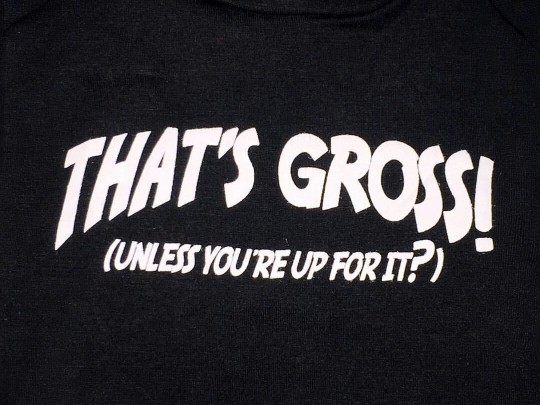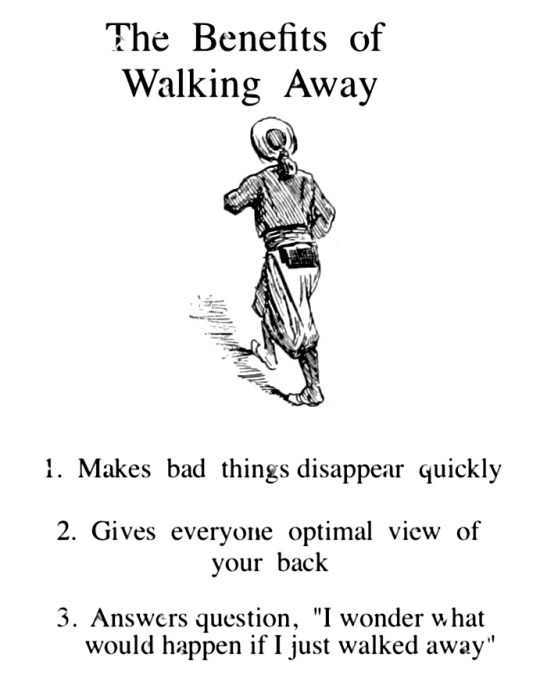Independent media covering philosophy, politics, education, and more, from a wide array of leftist perspectives.
Don't wanna be here? Send us removal request.
Text
Erin O’Toole contra Indigenous Peoples

Although Conservative Party leader Erin O’Toole had come under fire a month ago for suggesting that residential schools were initially “just about education,” his entire leadership of the party thus far has been thoroughly steeped in racism against indigenous peoples. O’Toole has made it explicitly known that he is more concerned with representing the interests of mega-corporations which profit off of the destruction of our environment—that is, who profit off of the destruction of colonized territories—than he is with representing indigenous interests in the slightest. Whereas a vast proportion of federal politicians at least have the courtesy to pretend like they care about indigenous issues whilst acting to make these issues worse, O’Toole has abandoned pretense entirely.
In a report from 350.org titled Human Rights Abuses by Fossil Fuel Companies, they highlight a review from 2006 which indicated that the fossil fuel industry accounted for two-thirds of corporate human rights abuses, and the extraction industry accounted for “the most allegations of the worst abuses, up to and including complicity in crimes against humanity.”
Some of their human rights violations include extrajudicial killings, and—what has become a Canadian pastime through our cooperation with the fossil fuel industry—the encroachment upon the rights of indigenous peoples. Particularly within the developing world, political corruption is just a normal part of how the fossil fuel industry operates. Within Nigeria, for instance, Shell and Eni were revealed to have bribed the president and politicians with hundreds of millions of dollars—money which we can be sure O’Toole would love to have the chance to accept himself.
As far as we are aware, however, fossil fuel companies aren’t offering O’Toole hundreds of millions of dollars, but his approval of the human rights violations which are part-and-parcel of their industry has no such price tag. He, like an over-exaggerated villain from a comic book, appears just to be corrupt for the sake of being corrupt.
How exactly is he corrupt? Well, within an article he wrote for the National Post, he not-so-cautiously paints a picture wherein indigenous peoples are criminals who are a threat to the prosperity of Canada, and this threat comes in the form of protesting the activities of the fossil fuel industry. Using a popular propaganda technique known as priming—which refers to, crudely speaking, the act of using misinformation to shape the way that an audience views information prior to receiving that information—he opens his article as follows:
Investment is leaving our country at a record pace. Billions of dollars of projects have been cancelled — most recently Teck Frontier, a project that would have created 7,000 construction jobs and 2,500 operational jobs in hard-hit Alberta. Every decision to pull investment from Canada is a threat to our social programs. Teck Frontier alone would have provided $70 billion to governments, money that is desperately needed to maintain and strengthen our health system as our population ages.
The question on the lips of Canadians today is: how did we get here? The answer to that is clear.
Not only is the appeal to emotion so incredibly present here, through a “think about the elderly!” claim which is directly associated with a fossil fuel mega-corporation, but he also makes an appeal to popularity, i.e. “The question on the lips of Canadians today is: how did we get here?” Perhaps this rhetoric would be more effective if he hadn’t already stated previously the intent to “ends fossil fuel subsidies, a form of corporate welfare.” Oops. It’s very difficult to argue that the fossil fuel industry is so strongly connected with the general welfare of Canadians when you admit that the billions of dollars in subsidies to the fossil fuel industry is, in fact, corporate welfare.
O’Toole continues by providing the “clear” answer to the question he raised:
We face this threat to our country’s future because of a Liberal government that has cancelled pipelines, banned tankers and passed legislation that makes it nearly impossible to build major projects. The illegal blockaders have taken their cues from more than four years of the Trudeau government’s attacks on our resource sector and those who work in it.
Yes, he portrays the blockades—which are largely done by indigenous peoples, and those acting in solidarity with indigenous peoples—as just illegal. Emphasizing the issue of legality here is a way to shut down serious discussion about it; it is a common tool for delegitimizing an issue. To further stress his authoritarian intent, he asserts that
An O’Toole government will pass a Freedom of Movement Act that will make it a criminal offence to block a railway, airport, port, or major road, or to block the entrance to a business or household in a way that prevents people from lawfully entering or leaving.
So, O’Toole’s chosen method to address indigenous issues relating to the fossil fuel industry is to use vague and authoritarian legislation in order to make it illegal for indigenous people to protest in the first place? (I’m sure this legislation wouldn’t be abused to shut down any number of other legitimate and peaceful protests…).
But O’Toole assures us that Canada already has a pretty progressive relationship with indigenous peoples:
In the days ahead, the Liberals may try to argue that adopting the United Nations Declaration on the Rights of Indigenous People (UNDRIP) is the correct way forward, but nothing could be further from the case. Canada has, entrenched in our Constitution, a world-leading recognition of Indigenous rights.
Okay. Let’s take a look at what indigenous rights are entrenched in our Constitution, and compare that with UNDRIP. Specifically pertaining to the rights of indigenous peoples, Section 25 of Charter of Rights and Freedoms asserts that
The guarantee in this Charter of certain rights and freedoms shall not be construed so as to abrogate or derogate from any aboriginal, treaty or other rights or freedoms that pertain to the aboriginal peoples of Canada including: (1) any rights or freedoms that have been recognized by the Royal Proclamation of October 7, 1763; and (2) any rights or freedoms that now exist by way of land claims agreements or may be so acquired.
Despite the emphasis on treaty rights, Canada has a long history of neglecting treaties entirely. For example, Treaty 6—which covers the territory I currently reside upon—meant an even split of resources and the distribution of food and medicine to the tribes which had theirs depleted. Not only was Treaty 6 signed under conditions of distress, alongside vastly different interpretations by indigenous peoples and settlers regarding what the treaty meant, but it also has a history of being violated. The Papaschase Cree were at the forefront of Treaty 6 violations during the 19th century; large portions of Edmonton, Alberta was once a reserve occupied by the Papaschase Cree until they were later coerced to surrender the land to settlers who didn’t want them in the city.
Beyond this, according to one hundred scientists who issued a proposal for a moratorium on the expansion of the tar sands in Alberta, the tar sands have hitherto constituted a great violation of indigenous rights:
Rapid expansion of the oil sands in Canada violates or puts at risk nation-to-nation agreements with Aboriginal peoples. In Alberta, oil sands mining is contributing to the degradation and erosion of treaty and constitutionally protected rights by disrupting ecological landscapes critical to the survival of Aboriginal culture, activities, livelihoods, and lifeways.
So, what exactly does O’Toole mean when he asserts that Canada already has a “world-leading recognition of indigenous rights”? Clearly he must think he lives in an alternate reality of some sort.
What about UNDRIP, then, does O’Toole see as so threatening? Perhaps it is Article 26, which declares that “Indigenous peoples have the right to the lands, territories and resources which they have traditionally owned, occupied or otherwise used or acquired.” Emphasis here on which they have traditionally owned. O’Toole most likely sees UNDRIP as threatening precisely because it calls into question lands which have been seized under treaty violations—lands which, if returned to indigenous peoples, would pose a threat to the all-consuming expansion of the fossil fuel industry.
I must remind you again that O’Toole, to our knowledge, hasn’t accepted hundreds of millions of dollars from fossil fuel mega-corporations. His unwavering support for them, and his consequential disregard for indigenous peoples, is free.
To read more articles like this, visit our website at theleftgazette.com
#Canada#Canadian Politics#Politics#Erin O'Toole#Indigenous#BIPOC#Fossil Fuels#Climate Change#Environment#Socialism#Socialist#Communism#Communist#Progressive
2 notes
·
View notes
Link
0 notes
Text
Philosphy: Anything around you could be an illusion created by your mind.
Me: Well at least I know for sure I exist.
Philosophy: The self is also an illusion.
Me: Fuck
951 notes
·
View notes
Text
“I like people who dream or talk to themselves interminably; I like them, for they are double. They are both here and elsewhere”
— Albert Camus
2K notes
·
View notes
Text
“Don’t bend; don’t water it down; don’t try to make it logical; don’t edit your own soul according to the fashion. Rather, follow your most intense obsessions mercilessly.”
— Franz Kafka
2K notes
·
View notes
Text
“I was drawn to all the wrong things: I liked to drink, I was lazy, I didn’t have a god, politics, ideas, ideals. I was settled into nothingness; a kind of non-being, and I accepted it. I didn’t make for an interesting person. I didn’t want to be interesting, it was too hard. What I really wanted was only a soft, hazy space to live in, and to be left alone.”
— Charles Bukowski
5K notes
·
View notes
Text
“The misuse of books is the death of sound learning. People think they know what they have read, and take no pains to learn.”
— Jean-Jacques Rousseau, Emile, or On Education
811 notes
·
View notes
Text
“It’s true that society acts like a screen between the sky and ourselves. So we live by proxy.”
— Albert Camus to Jean Grenier, Correspondence 1932-1960
119 notes
·
View notes
















